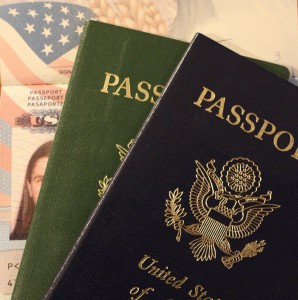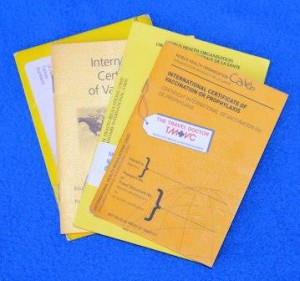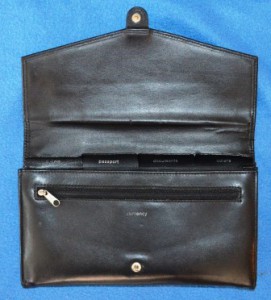Have your necessary travel documents – Save stress
This is such a key component of getting ready for your travel, even more so with a young family.
- Has your baby got their own passport?
- Do you have necessary vaccinations for the whole family?
- Do you need any other documents with you such as birth certificates or marriage certificates?
- Do you have more than 6 months remaining on every passport?
These are just some of the questions to answer.
There are few more stressful and inhibiting travel problems than being stuck without a necessary document or a document that is incorrect. Checking your requirements and details long before you travel is critical and will save a lot of stress and hassle.
Here are a few tips to ensuring your documents are in order:
 Start the process early. Some documents may require a lot of lead-time to organise and process. You may need to allow for some back and forth with the Authorities also on some documents
Start the process early. Some documents may require a lot of lead-time to organise and process. You may need to allow for some back and forth with the Authorities also on some documents- Passports normally require a minimum of 6 months validity while travelling, so check your expiry dates. Some countries will forbid entry if you do not have at least 6 months remaining until your passport expires. Check each family members passport carefully well before flying!
- Applying for a babies passport can be time consuming and expensive. We applied for all of our children’s passports before they were 2 weeks old as most travelled by 6 weeks old. It can be very difficult getting a legal passport photo of a young baby – eyes open, showing ears, no expression etc. We had to end up using a professional photographer for two of ours as the local photo shop just could not get it right. This is both more costly and time consuming. Remember – the officials will return your application if it does not meet the standards – even in your young baby.
- Ensure you have all Visa and Permit documents where these are required – check the requirements of countries you are visiting – early! Some countries may also require a supporting sponsors letter. Generally you can check on the government website of the country you are visiting to see the requirements and download the appropriate paperwork.
- Carry a copy of your Residency Documents. Where you have residency for a country, ensure you carry a copy of this permit with you – both a paper copy and also a scanned copy to your email address or on Google Drive or Dropbox.
- Children’s birth certificates, adoption papers, marriage certificates (or equivalent), change of name and others if these are required for countries you are visiting. For example, South Africa now require most travellers to carry their child’s birth certificate (and a letter if it is just one parent traveling). Make sure these things are researched for each country you are visiting or transiting. Again, having copies of these on your email address or Google Drive / Dropbox can be very helpful and has assisted us on more than one occasion.
-

These vaccination booklets are critical in some countries!
Yellow Fever and Vaccination Record Book. If you are travelling in developing countries, there may be the requirement for various vaccinations. Ensure you check websites and/or with your travel doctor what is required for you and your children. There are places we travelled to in Africa where they will vaccinate you at the border if you can not prove you have the necessary Yellow Fever (or others) certificate / stamp – this is certainly high risk and not what you want for your family.If a member of your family can not have the necessary vaccination, ensure you have an official signed letter from a travel doctor stating the reasons why not eg. a baby under 1 years of age generally should not have the live Yellow Fever Vaccination.
- Travel Insurance documents. It is good to have access to the contact details, policy number, key benefits and requirements of your travel insurance. Be aware that in the event of flights cancellations or delayed / lost luggage, it can be very useful to easily know your entitlements. More serious issues will require a phone call to your insurer but having the details handy will save time and stress.
- All flight, accommodation, transport and tour bookings. It is often best printed and placed in your travel wallet in order of usage. I would also type up a document that has everything contained in the one place – in date / time order. Be aware that sometimes your phone may not have internet access overseas when you most need it, so don’t just rely on electronic records – speaking from personal experience! I also used Microsoft One Note to store all our travel bookings on my laptop.
- Frequent Flyer and Membership cards.
-

Keep all your documents together in a Travel Wallet
Take scan copies of all your important documents – and save some to the ‘cloud’ or to your email address. We have used electronic copies on many occasions as we travel – you just never know when you may need it.
- Use a Travel Wallet to store all your documents. We carried an excellent Travel Wallet with us that had compartments for our 6 Passports, Forex, Residents Permits, Tickets & Vouchers, Frequent Flyer Cards, Insurance Details and Vaccination Books. When you are juggling luggage, kids etc – it is so handy to have everything in order, in one place.